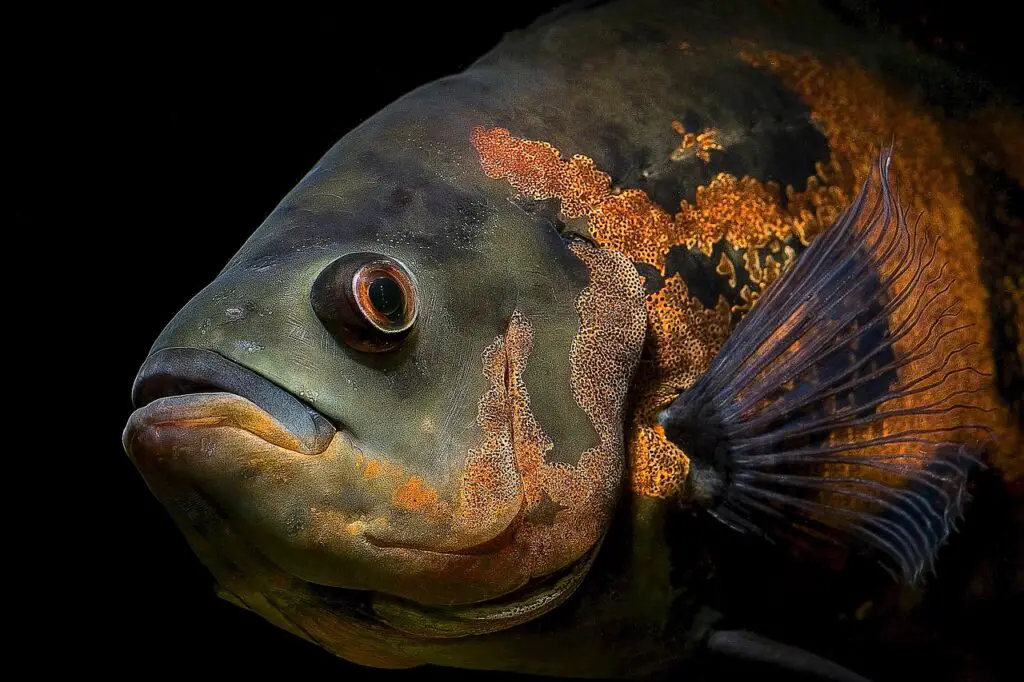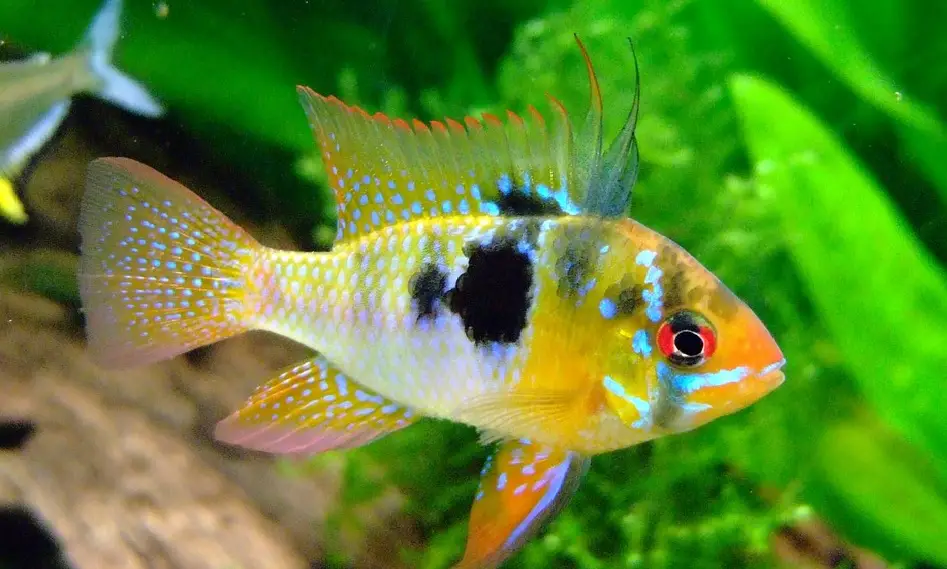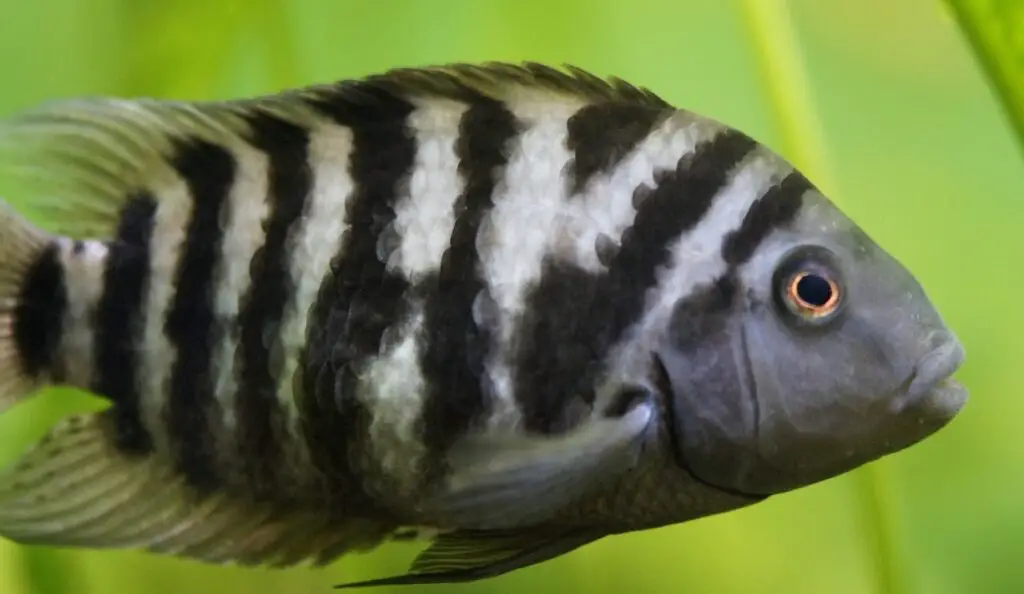As with many questions in life, the answer to “Can cichlids eat mealworms?” is not a simple yes or no. It’s like trying to solve an intricate puzzle. You must consider all the pieces before coming up with a solution. Just as it takes more than one piece of jigsaw puzzle to create the perfect picture, finding out if cichlids can enjoy mealworms requires looking at various aspects of their diet and lifestyle.
Cichlids can eat a variety of foods, including mealworms. Mealworms are a great source of protein for cichlids and can provide them with the necessary nutrients to stay healthy.
In this article, we’ll be taking a closer look at whether or not cichlids can safely consume mealworms as part of their regular meals.
Nutritional Value of Mealworms for Cichlids
They say knowledge is power, and when it comes to feeding our cichlids the right food for their health, this couldn’t be more true. Let’s take a closer look at the nutritional value of mealworms for cichlids.
Mealworms are an excellent source of protein, with up to 44% of their total calorie count coming from proteins. They also contain essential minerals like calcium, magnesium, and phosphorus – which are all important for proper metabolic functioning in fish. Additionally, mealworms offer some vitamins as well, including niacin, thiamine, and riboflavin. All these nutrients can help boost your cichlid’s immune system and keep them healthy overall!
When considering whether or not you should feed your cichlids mealworms, there are many benefits that come along with it, such as improved digestion and stronger bones due to the higher levels of minerals they provide. Mealworms can also be easier to digest than other alternatives because they don’t require any special preparation before serving them to your fish. Plus, since they’re quite small in size compared to most other foods meant for fish, they won’t take up too much space in their stomachs either!
So if you want to give your cichlids the best nutrition possible without sacrificing time or effort, mealworms could be just what you need! Now let’s look at the benefits of feeding mealworms to cichlids…

Benefits of Feeding Mealworms to Cichlids
Feeding your cichlids mealworms can be beneficial in a number of ways. For starters, mealworms are an excellent source of protein, which is so important for fish health and growth. Plus, they provide essential fatty acids to help promote healthy skin and scales.
Another benefit of feeding mealworms to cichlids is that it helps keep them from becoming bored with the same food all the time. Because these worms have such a crunchy texture, they’re sure to stimulate their senses and make mealtimes more interesting! Plus, since they contain natural fats and oils, they can also help support healthy digestive systems.
Finally, because mealworms don’t require special preparation or storage, you can feed them easily whenever you like – no need to worry about refrigeration or complicated recipes. This makes them a great choice if you’re looking for something convenient yet nutritious for your cichlids! With this in mind, let’s move on to discuss potential risks of feeding mealworms to cichlids.

Potential Risks of Feeding Mealworms to Cichlids
It’s no secret that we want the best for them when it comes to feeding our cichlids. That being said, mealworms are a popular choice among hobbyists as they offer many benefits – but with great power comes great responsibility, and there are potential risks associated with this type of diet. Let’s take a look at what these might be:
First off, overfeeding can lead to bloating in cichlids which can have serious consequences if not addressed. Secondly, uneaten food left in the tank can increase ammonia levels, causing stress on your fish. Thirdly, too much protein from mealworms can cause liver damage and swim bladder issues. Fourthly, parasites may also find their way into your tank through infected mealworms. Finally, certain species of cichlids should never eat mealworms due to their delicate digestive systems.
That being said, understanding the balance between risk and reward is key when introducing new foods into our tanks – knowledge is power! So let’s move on to ensuring you get the most out of feeding mealworms while minimizing potential harm to your beloved fish.
Best Practices for Feeding Mealworms to Cichlids
“A stitch in time saves nine,” so they say. It’s important to use best practices when feeding mealworms to cichlids, as it could have an effect on their health and well-being. Firstly, you should always keep the number of mealworms small if your cichlid is a smaller species. Too many can overwhelm them and cause digestive issues. Secondly, ensure that the worms are fresh or frozen rather than dried out; this will ensure maximum nutrition for your fish. Lastly, be mindful of any dietary allergies or sensitivities that your cichlid may have – some individuals just don’t do well with certain types of food!
By following these tips, you’ll be able to give your cichlid a healthy diet without worrying about potential risks associated with mealworms. However, other options are available for providing protein-rich meals for your fishy friend. Let’s take a look at some alternatives to consider…

Alternatives to Mealworms for Cichlids
Feeding your cichlids is a bit like putting together a jigsaw puzzle. All the pieces must fit together to get what they need and stay healthy. Mealworms are one of those pieces, but there are alternative options too. Here’s everything you need to know about alternatives to mealworms for cichlids.
The first thing worth considering when looking at mealworm alternatives is whether or not your cichlids will actually eat them. Many species find other foods more appealing than mealworms, so it pays off to research their dietary preferences before switching out mealworms completely. Live brine shrimp, krill, blood worms, and tubifex worms can all be great substitutes that bring variety and excitement to mealtimes!
Another important factor in deciding on an alternative food source is its availability. Some types of fish food require special equipment or a trip to the pet store – which can be inconvenient if you’re trying to feed your cichlid regularly. Luckily, alternatives such as frozen or freeze-dried fish flakes and pellets can usually be ordered online without much hassle, making it easier for you to provide your little friend with all the nutrition they need!
No matter what type of food you choose for your cichlid, make sure you stick with quality brands and don’t overfeed them, otherwise, they may get sick from overeating or poor nutrition. Also, remember that variety is key: giving your fish different types of food helps keep things interesting and ensures that they get all the nutrients required for optimal healthiness!
Conclusion
In conclusion, feeding mealworms to cichlids can greatly improve their diet. Mealworms are packed with nutritional value and offer many benefits for these fish. That being said, it’s important to remember that there can also be risks involved with feeding them too often or in large amounts. When done properly though, this is an easy way to give your cichlids a tasty snack they enjoy while providing all the nutrition they need!
To ensure you get the most out of feeding mealworms to your cichlids, follow best practices like limiting how many worms per day and monitoring water quality levels frequently. This will help keep both you and your fish happy and healthy! For those looking for other types of food sources for their cichlids, there are plenty of alternatives, such as frozen foods, algae wafers, or pellets.
Overall, when used correctly, mealworms can be an excellent source of protein and nutrients for cichlids. Feeding them allows us as owners to turn back time on our pet’s wild diets and provide them with something close to what Mother Nature would have given them if we could travel through time – without having any ill effects from doing so!
